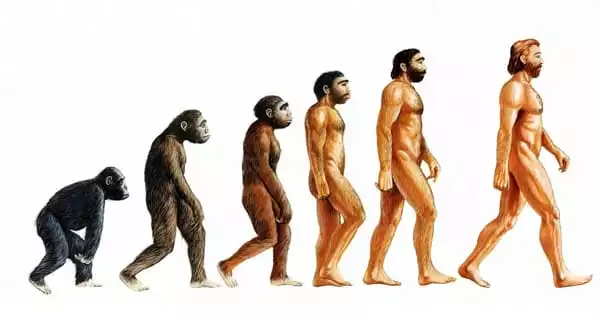The level of support for evolution among scientists, the general public, and other organizations is a recurring topic in the creation-evolution debate, and it impacts on educational, theological, philosophical, scientific, and political problems. The matter is especially problematic in countries where the general population rejects evolution, despite the fact that evolution is taught in public schools and universities.
According to a recent study based on a series of national public opinion surveys taken over the last 35 years, the level of public acceptance of evolution in the United States is now comfortably above the halfway point.
“From 1985 to 2010, there was a statistical dead heat between acceptance and rejection of evolution,” stated lead researcher Jon D. Miller of the University of Michigan’s Institute for Social Research. “However, acceptance then skyrocketed, eventually reaching the majority stance in 2016.”
The study examined data for 35 years and consistently identified characteristics of education as the main predictors leading to acceptance of evolution: civic science literacy, completing college scientific courses, and obtaining a college degree.
Almost twice as many Americans possessed a college degree in 2018 as in 1988. It’s difficult to get a college degree without developing at least a passing admiration for science’s success. However, acceptance then skyrocketed, eventually reaching the majority stance in 2016.
Mark Ackerman
“Almost twice as many Americans possessed a college degree in 2018 as in 1988,” said co-author Mark Ackerman, a researcher at Michigan Engineering, the University of Michigan School of Information, and the University of Michigan School of Medicine. “It’s difficult to get a college degree without developing at least a passing admiration for science’s success.”
The vast majority of scientists and academics believe that evolutionary theory is the only explanation that can adequately account for observations in biology, paleontology, molecular biology, genetics, anthropology, and other sciences. According to a 1991 Gallup poll, approximately 5% of American scientists (including those with training in fields other than biology) are classified as creationists.
Furthermore, intelligent design, a neo-creationist branch, is regarded as unscientific, pseudoscience, or trash science by the scientific world. The National Academy of Sciences of the United States has said that intelligent design “and other claims of supernatural intervention in the beginning of life” are not science because they cannot be tested by experiment, do not create predictions, and do not suggest new hypotheses. In September 2005, 38 Nobel laureates signed a statement declaring, “Intelligent design is inherently unscientific; it cannot be verified as a scientific theory because its central conclusion is predicated on believing in supernatural intervention.”

The researchers examined a collection of biannual surveys from the Nationwide Science Board, six national surveys financed by National Science Foundation departments, and a NASA-funded series on adult civic literacy. Beginning in 1985, these nationwide samples of U.S. adults were questioned if they agreed or disagreed with the following statement: “Human beings as we know them today evolved from previous kinds of animals.”
From 1985 to 2007, a series of polls revealed that Americans were evenly divided on the issue of evolution. Only Turkey, at 27 percent, fared lower than the United States in a 2005 assessment of acceptance of evolution among 34 affluent nations led by Miller. However, between 2004 to 2019, the percentage of American adults who agreed with this statement climbed from 40% to 54%.
Religious fundamentalism was consistently identified as the most powerful factor leading to the rejection of evolution in the current study. While their numbers have decreased significantly in the recent decade, the survey defines religious fundamentalists as around 30% of Americans. Even those who scored the highest on the religious fundamentalism scale went toward acceptance of evolution, climbing from 8% in 1988 to 32% in 2019.
Miller forecasted that religious extremism will continue to stymie public acceptance of evolution. “Such ideas are not only persistent, but they are also more politicized,” he said, citing a growing divide between Republican and Democratic acceptance of evolution. In 2019, 34% of conservative Republicans embraced evolution, compared to 83% of liberal Democrats. The findings of the study have been published in the journal Public Understanding of Science.
There does not appear to be a significant relationship between belief in evolution and knowledge of evolutionary research. Creationist ideas (or a lack of respect for evolutionary science) are relatively widespread in several countries, even commanding a majority of public opinion. In a study published in Science, researchers evaluated attitudes toward evolution in the United States, 32 European countries, and Japan. Turkey was the only country where acceptance of evolution was lower than in the United States (25 percent). Public acceptance of evolution was highest (almost 80% of the population) in Iceland, Denmark, and Sweden.
















